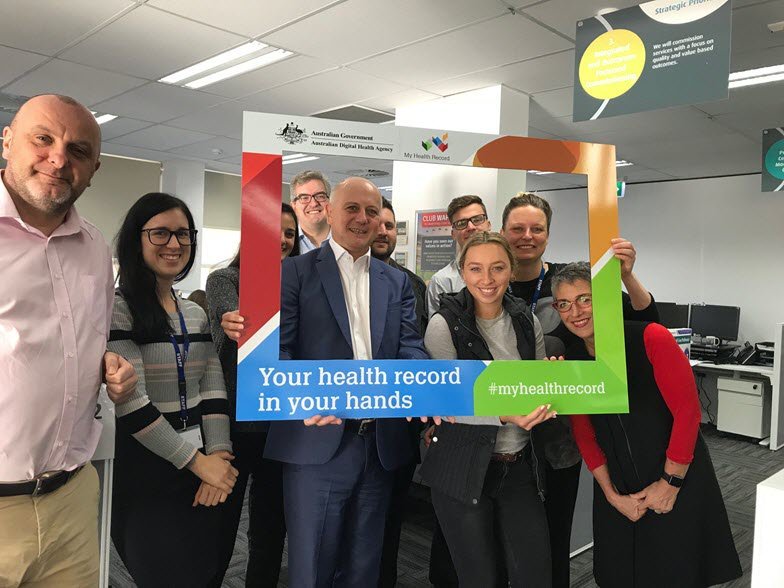The debate about My Health Records is reminiscent of every such debate since the failed Australia Card scheme back in the eighties. Australians have a privacy obsession. What are we so afraid of?
Norway has had a single identity number for all citizens since 1964. It is a practical measure, not contested when implemented, nor controversial today. Here in Australia, Bob Hawke introduced The Australia Card in 1985, causing a double dissolution election two years later. It was ultimately defeated. Over the years, similar schemes have met the same fate, and now the debate rages over My Health records. We seem to have a privacy obsession in this country. What are we so afraid of?
On the odd occasion that I need to access my bank account or a government service back in the country I left 30 years ago, I do so using my “Person-nummer” – 11 digits comprising my birthdate and a serial number. Plus a secure two-factor authentication system using a dongle or a mobile phone. It’s a centralised service owned and run by the banks, tightly regulated.
Virtually every business and government agency in Norway use it as their primary online authentication method. Every adult over the age of 15 have access. It has over 4 million users, 75% of the population.
The benefits go beyond being able to log in to online services. The common identifier also means that records about me, my affairs and my transactions are transparently available for the services that need them. The tax department has access to my bank records, who have access to my insurance records, who have access to my health records, etc. But only if I give them permission. Norway’s privacy laws provide good protection, there is little fear of misuse of the data, so hardly anyone refuses permission.
If you’re a law-abiding citizen, conduct your affairs above board, submit your tax returns, have a job or a pension, your data is entered once, and it is combined and matched when needed.
If you have nothing to hide except the odd job-on-the-side or making “hjemmebrent” (moonshine), your data is securely available to those that need it. Your workplace, home address and phone numbers are also publicly available. If you move or change anything you update it in one place, and everyone that needs to, have instant access. It’s convenience made possible by the information technology revolution.
The depth, consistency and access to data also means that there is no longer need for a census; the Norwegian ABS equivalent has all the meta-data it needs. The last census in Norway was in 2011.
So why are we so afraid down under?
Privacy Obsession
Why is providing medical practitioners with data about our health so contentious? What do we think “they” will do with it? Why is answering a questionnaire from an insurance company or providing the same answers again and again preferable to entering it once and making it available to those that we give permission? Why is this so scary for so many?
Are Australians less law abiding than Norwegians?
Quite the contrary, Australians generally stick to the rules, Norwegians are more likely to break them if they can get away with it. Here, pedestrians will wait obediently for the little green man to appear even if there is no traffic. In Melbourne I’d get angry stares if I do cross, but in Oslo people smirk if I don’t.
Do Aussies have more to hide? Why do Australians guard their privacy so fiercely? Are we introverts in disguise? No way, mate, it’s the Vikings who are famously reserved. That’s what my (Australian) ex-wife used to tell me – and she was right about that, too.
The dichotomy of the reserved Norseman and the openness of Norwegian society goes much further. Everybody’s tax record is available online for anyone to see. If you want to find out who is driving the slick BMW parked in front of your gate, send a text with the rego to the Vehicle Authority and get the name of the owner back – it costs 50 cents.
The contrast extends to openness of Government. In Norway, the governing principle of freedom of information laws is that information is available unless exempted (which is limited to issues strictly related to national security). This is in stark contrast to here in Australia where everything the Government does seems to be covert unless the information is specifically requested. And even then, Government Ministers and the Bureaucracy will fight tooth and nail to avoid releasing it.
The Government don’t trust us, and we don’t trust the Government. And not just the Government. Australians have a deep distrust of institutions, including big corporations. We used to trust the Church, but not after the Royal Commission into Child Abuse. We used to trust the Banks; now they too, are being exposed for their dishonest ways.
Funny thing is, though, we generally trust each other. There is hope in that, even if we won’t give each other a number.
This article first appeared on Crikey.


Hi, Kim, Australians have always had a healthy disrespect (bordering on contempt), for authority. Unlike the picture you give of Norway, we question government constantly and with good reason. Recent examples with Draconian security and immigration laws seem to amply demonstrate our reasons for doubting our government’s benevolent intentions.
Spot on Bernie, although Norwegians question their Government, too. Constantly and vocally, but openness begets respect, and that’s what’s missing here. Sadly.